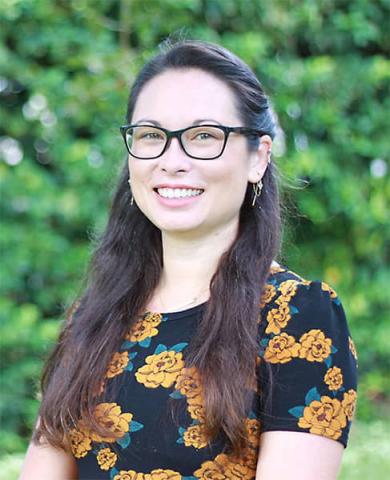Jennifer Manuzak, PhD
Assistant Professor, Division of Immunology
Tulane National Biomedical Research Center
Phone
985-871-6473
School of Medicine
Microbiology Immunology TNBRC
Tulane National Biomedical Research Center

Research
My research program is centered around two major themes:
- Identify key immune mechanisms that drive accelerated pathogenesis and risk for poor outcomes during HIV/malaria co-infection and aid in the development of novel therapeutics to safely and effectively reduce morbidity and mortality in pregnant and non-pregnant people at risk for both HIV and malaria. HIV remains one of the world’s most devastating diseases, with 38 million people living with HIV (PWH) and an additional 1.5 million new infections per year. Moreover, in 2020, infection with malaria was reported to have reached 241 million cases worldwide and caused over 627,000 deaths. Although advances have been made in reducing the incidence of both HIV and malaria, the risk of infection with either disease is still great, especially in resource-limited settings. Importantly, the geographical overlap in endemic HIV and malaria constitutes a high risk for co-infection, fueling transmission and pathogenesis of both diseases. A better understanding of the biological mechanisms that drive the risk for greater immunopathogenesis in HIV/malaria co-infection will aid in the development of new therapeutics and treatment strategies that can safely and effectively reduce morbidity and mortality due to both HIV and malaria. Currently, we are using the non-human primate (NHP) model to test the hypothesis that concurrent malaria infection diminishes the efficacy and immunogenicity of SIV/HIV vaccination. We are also using the NHP model to examine the mechanisms by which malaria co-infection drives mucosal immune dysfunction in SIV-infected rhesus macaques. Finally, we are characterizing the mechanisms by which SIV infection exacerbates the risk for poor maternal and fetal outcomes during malaria in pregnancy (MIP). We are interested in expanding our studies to explore the impact of other emerging and neglected infectious diseases on mucosal immunity and HIV pathogenesis, particularly in women and during pregnancy.
- Identify key immune mechanisms by which substance use drives enhanced HIV acquisition risk and potential for poor outcomes in people with HIV (PWH) and aid in the identification of new treatment targets to advance prevention efforts and improve clinical outcomes in pregnant and non-pregnant people at risk for or with HIV. The use and misuse of substances, like cannabis and methamphetamines, is highly prevalent among PWH, as well as individuals at high risk acquiring HIV. However, the immune mechanisms by which substance use may enhance HIV susceptibility, and how this may intersect with HIV prevention behaviors among at-risk individuals is not well understood. Likewise, the effects of substance use on immunopathogenesis in PWH, especially among particularly vulnerable populations such as pregnant or older PWH, have not been fully described. A greater understanding of the impact of substance use on immunity and biobehavioral factors leading to (1) increased HIV acquisition risk in disproportionately burdened populations; and (2) greater immunopathogenesis in PWH, especially older adults or those who are pregnant, will contribute to advances in HIV prevention efforts and reveal novel therapeutic targets for improving clinical outcomes in PWH, respectively. Currently, we are contributing to research to determine the effects of cannabis use by sexual minority men (SMM), with and without pre-exposure prophylaxis (PrEP) use, on the expression of immune biomarkers, both in the rectal mucosa and systemically, to gain a better understanding of how cannabis use intersects with higher HIV acquisition risk. We are also contributing to research to assess rectal and systemic immune biomarkers in methamphetamine using SMM and characterizing associations with amplified HIV seroconversion risk. We are interested in expanding our studies to leverage the NHP model to investigate the immunological mechanisms by which substance use (1) elevates the risk for adverse pregnancy outcomes among PWH and (2) drives pathogenesis and risk for developing age-associated comorbidities among older PWH.
Current Research Projects:
- Impact of malaria co-infection on HIV/SIV vaccination
- Mechanisms of intestinal mucosal immune dysfunction in SIV/malaria co-infection
- Role of innate immunopathogenesis in SIV/malaria co-infection in pregnancy
- Associations of cannabis use with HIV prevention behaviors and transmission risk
- Impact of methamphetamine use on bio-behavioral determinants of HIV seroconversion
